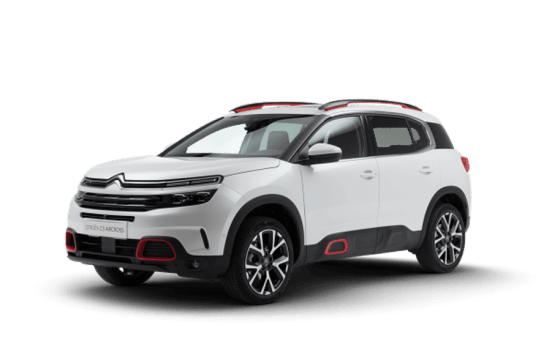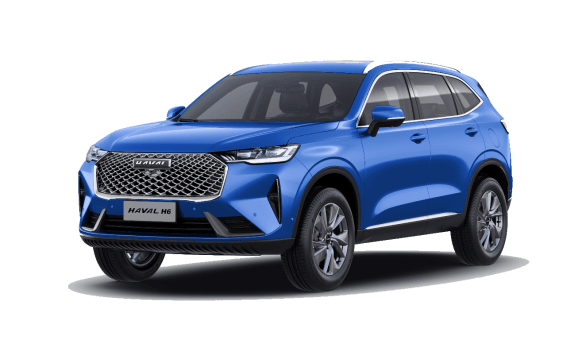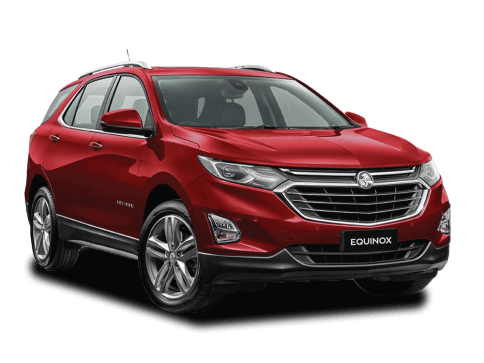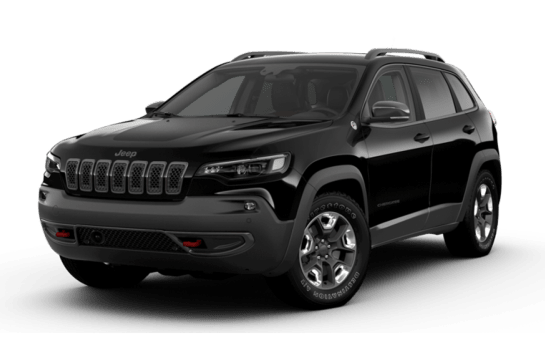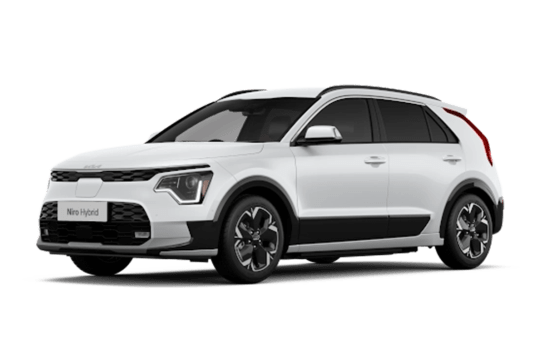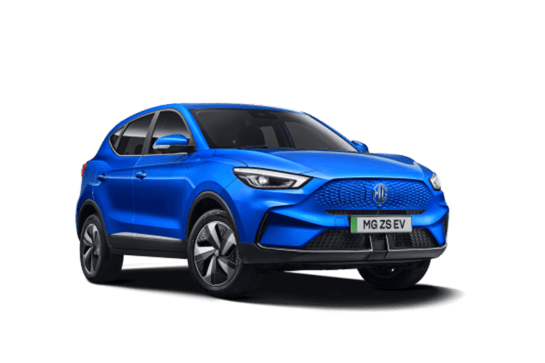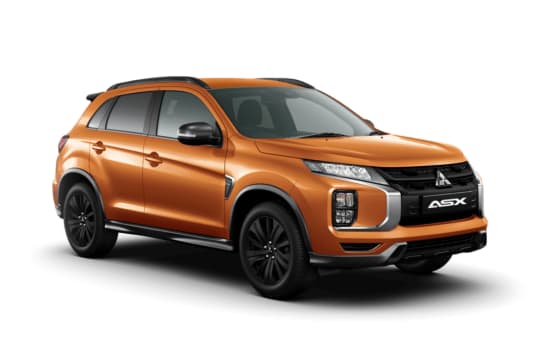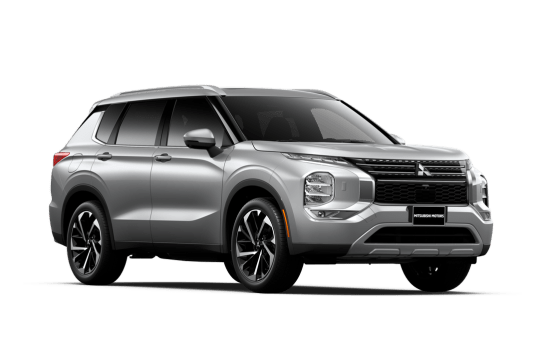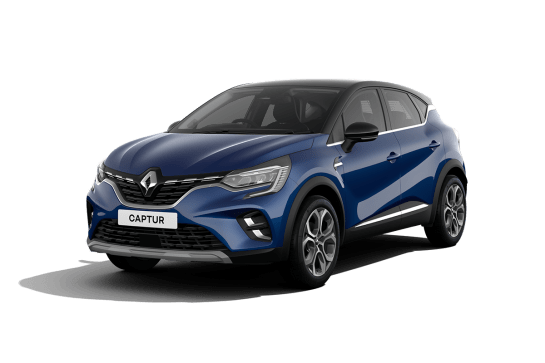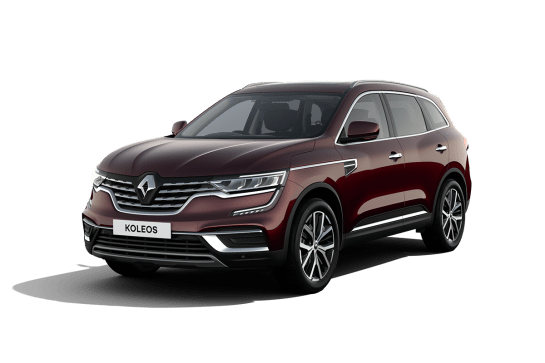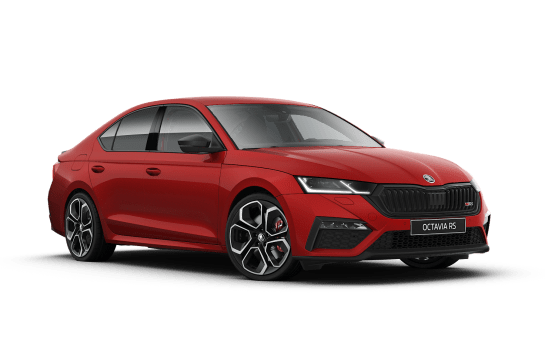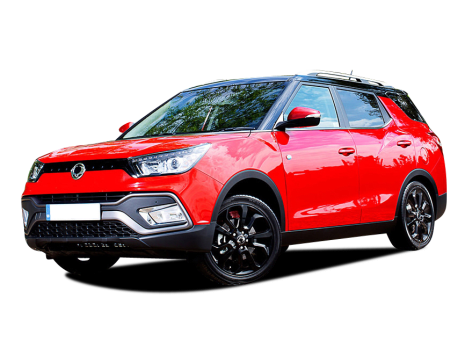
Honda CR-V VS MG ZS EV
Honda CR-V
Likes
- Exceptional value for money
- Superb engineering
- Excellent family-focused packaging
Dislikes
- No full-sized spare wheel
- No hybrid AWD availability
- Firm ride
MG ZS EV
Likes
- 440km range on a full charge
- Spacious with good storage
- Easy to drive
Dislikes
- Pricey compared to rivals
- No reach adjustment for steering wheel
- High driver's seat
Summary
Honda CR-V
In the distant future, automotive historians will look back at the Honda CR-V as one of the true SUV originals.
Sure, it and the conceptually-identical Subaru Forester, trailed the trendsetting Toyota RAV4 of 1994 by three years, but collectively all three Japanese brands broke and then reset the Australian family-car mould in lightning-quick time. Too much so for the floundering local car industry to ever catch up.
Today, they remain the blue-chip mid-sized SUV contenders.
Six generations in, how does the completely-redesigned CR-V in all-new e:HEV (petrol-electric hybrid) guise stack up? Let's find out!
Read more about
- Honda CR-V 2024 review: VTi L7
- Will Honda Australia Elevate its number of SUVs with the 2024 WR-V to compete against the Mazda CX-3, Nissan Juke and Toyota Yaris Cross?
- Lots of Honda electric cars on the way including 2024 Prologue SUV and new sports car concept to be shown at Tokyo - but will Australia really continue to miss out?
| Safety rating | |
|---|---|
| Engine Type | 2.0L |
| Fuel Type | — |
| Fuel Efficiency | 5.5L/100km |
| Seating | 5 seats |
MG ZS EV
If, like just about everybody, you’re a bit concerned that an electric car might not be able to travel as far as you need to go, then the new MG ZS EV Long Range could be the small, fully-electric SUV for you.
We’ve tested the ZS EV Long Range here and can tell you how far you’ll get on a full charge and how much extra you’ll have to pay in price over the standard range version, along with what it’s like to drive, its features, practicality, ownership costs and of course its safety systems.
Read more about
- Advantage, BYD Atto 3? MG axes Australia's cheapest electric SUV as 2023 MG ZS EV Excite makes way for new entry model
- The sedan isn't finished yet! 2023 MG5 price and spec easily undercuts Toyota Corolla, Mazda 3 and Hyundai i30
- Should Porsche be worried? 2024 MG Cyberster electric sports car revealed as 400kW EV drop-top set for Australia!
Be sure to watch the video above, where I’ll take you for a ride and show you my Big Foot tattoo. Yes, seriously.
| Safety rating | |
|---|---|
| Engine Type | — |
| Fuel Type | Electric |
| Fuel Efficiency | —L/100km |
| Seating | 5 seats |
Verdict
Honda CR-V8.5/10
The most-expensive version of the latest Honda CR-V is one of the most convincing family-orientated mid-sized SUVs in Australia, regardless of price and positioning.
For efficiency, economy, driveability, packaging, safety, quality, refinement and value-for-money, it is an outstanding value proposition. Don't buy a RAV4 or Forester hybrid before checking this one out.
We cannot wait for the e:HEV hybrid powertrain to filter down to cheaper grades, to make the best CR-V in decades even more accessible.
MG ZS EV8/10
The MG ZS EV Long Range is a practical small SUV that's easy to drive and the 440km it can travel on a full charge makes it the better choice over the standard range ZS EV. The extra 120km offered by the Long Range version reduces anxiety and is truly useful in covering more ground between charging.
The asking price may seem expensive but electric vehicle batteries are extremely costly to produce and will remain so for years to come.
Remember, too, that the MG4 electric car has an even great range for the same money - the only catch is, it's a hatch and not an SUV.
Design
Honda CR-V
Though considered handsome, the CR-V has never been a style leader. Function over form has always been its calling card, and Number Six is no exception.
Cleanly drawn, with boxy proportions and a blunter, squarer nose providing a contemporary if somewhat bland appearance, the Thai-built Honda lives on the larger end of the mid-sized SUV scale, resulting in lots of space and practicality.
Yet there are interesting and worthwhile details to explore, like narrower-than-usual windscreen pillars for exceptional forward vision.
The same applies to the considered positioning of the exterior mirrors, minimising blind spots, while deep glass areas allow light to flood in.
The stylish, Volvo-esque L-shaped tail-light graphic probably connects most clearly with past CR-Vs, giving the latest version an elegant overall presence.
Compared to the old model, the latest version's wheelbase has been stretched by 40mm to 2700mm, while front and rear tracks are 10mm wider, coming in at 1611mm and 1627mm, respectively.
Note that the front-drive models' ground clearance is 198mm – 10mm less than on the (non-hybrid-only) AWD grades.
MG ZS EV
The ZS EV Long Range has a traditional SUV shape but with a very futuristic looking face thanks to its grille-less nose. That’s because with no radiator needed to cool a combustion engine there’s no need for an open vent or grille for air flow.
MG has used a textured plastic to subtly imitate an old-school grille to lessen the visual impact of a sheet of plastic between the headlights.
I think the effect works although the obvious charging flap could have been cleverly and seamlessly integrated into the nose, in the same way Genesis has done with the GV80 Electric. But the attempt has failed.
The ZS EV Long Range’s cabin looks premium with the sporty seats and red stitching, the landscape screen and digital driver display.
But, while the interior looks great, it feels a little low quality in places such as the vinyl upholstered seats.
There are some ergonomic issues with the high centre armrest and the raised seating position, too.
Practicality
Honda CR-V
Little wonder the CR-V was the world's third most-bought SUV worldwide in 2023. It's big enough for most families' needs... and then some.
This is immediately apparent the moment the big doors are opened up nice and wide, revealing an airy, spacious and extremely user-friendly interior.
The Japanese brand has striven successfully for greater visual symmetry, harmony and operational simplicity in the dashboard's design and layout.
And, sure, the 9.0-inch touchscreen lacks the wow factor of vast buttonless displays as found in flashy alternatives such as the disappointing Chery Tiggo 7, but it works very effectively.
Hondas have always nailed the driving position bit down pat, and the RS is no exception, with ample seat and steering column adjustment, considered controls placements and unimpeded views of the instrumentation and road ahead due to the aforementioned thin pillars.
The instrumentation cluster is an electronic set-up offering the driver the choice of either super crisp and ultra-clear analogue dials, or somewhat fussier bar graphs, with a digital speedo augmenting both.
There's so much to enjoy and so little to criticise inside Honda's mid-sized SUV. Along with space to stretch, the front seats are notably comfortable and supportive, as several hundred kilometres sat ensconced in them proved. Both sides have electric adjustment at this price point, too.
Ventilation also rates highly, with the honeycomb full-dash-length grille and lovely toggle switches bringing aesthetic and tactile delight, respectively.
And, reflecting the CR-V's US focus, storage is on a large and helpful scale, offering bottle holders in the doors amongst other places to stash things in and on.
Moving to the rear seat area, entry/egress is ridiculously unimpeded, with a decently-shaped bench.
Families are also likely to appreciate series-best legroom, backed up by a handy amount of girth – always a good thing.
You're also met with occupant-facing air vents, overhead grab handles, even more door storage, the obligatory folding centre armrest with cupholders, front-seat-sited map pockets and a pair of USB-C outlets.
However, the standard sunroof does rob some headroom so people taller than about 180cm had better try before they ride, though the 60/40 backrest reclines to 16 positions and that's helpful here.
Being a hybrid, the RS e:HEV misses out on the sliding bench which adjusts by 190mm in other CR-Vs.
Vision out is exemplary back there, enhancing an already spacious and airy ambience. But if the front seat area majors on Japanese quality, the rear is hardly premium, with plenty of dreary cheap plastic trim, betraying the Honda SUV's focus on the price-driven American market. But nothing squeaked, rattled or broke, thankfully.
Further back, the tailgate rises remotely quickly enough, and there's quite a wide and long area to store things, but the electrification elements make for quite a high and uneven floor – though a deep bin area is also provided to hide stuff in.
There's also just a can of goo in lieu of a spare wheel.
Cargo capacity rises compared to the previous CR-V, ranging from 589 litres with the rear seats up, to 1636L, or 1072L if measured only to the window line.
MG ZS EV
The ZS EV Long Range is a practical small SUV and it fit my little family of four, although my kids are both under 10 years old and not at the lanky teenager point yet.
Space on board is good, offering ample legroom for even me (at 188cm) in the second row and adequate headroom back there, too.
I like the large door pockets, the wireless phone charger, and there are two USB ports for the back seats and another two up front.
The second row also has directional air vents and dark-tinted windows. I liked the panoramic sunroof's retractable shade, too.
SUVS like the MG ZS offer easier access than sedans and hatches thanks to the elevated ride height which means people of my height don’t need to crawl in and out on their knees.
Boot capacity is decent at 359 litres, but not enormous.
Price and features
Honda CR-V
At the time of writing, choosing the hybrid version over the regular petrol-turbo CR-V means forking out for the top-of-the-line RS. Less expensive (and luxurious) hybrid grades are expected soon.
Starting from $59,900 drive-away, it isn't cheap, especially as its two closest rivals – the RAV4 Cruiser Hybrid and Nissan X-Trail Ti e-Power e4orce – offer all-wheel drive (AWD) for around the same price, while the Honda is front-wheel drive only.
At least the RS e:HEV isn't short on equipment, especially safety, with 11 airbags, Autonomous Emergency Braking (AEB), blind-spot alert, lane-keep assist, rear cross-traffic alert and adaptive cruise control included. Check out our safety section below for more details.
Being the CR-V flagship, you'll also find adaptive LED headlights, a panoramic sunroof, dual-zone climate control, leather upholstery, powered and heated front seats, a 9.0-inch touchscreen, sat-nav, wireless Apple CarPlay/wired Android Auto, Bose premium audio with 12 speakers, digital radio, a wireless charger, privacy glass, hands-free powered tailgate, roof rails, front and rear parking sensors and 19-inch alloys.
Note, however, there is no spare wheel, just a tyre-repair kit. Not good enough. For why, please see the Cost of Ownership/Warranty section.
There's also five years' free subscription to 'Honda Connect', bringing remote-control operation for climate control, lights and locking/unlocking, trip log data, location status, geo-fencing and emergency callout.
What's missing? Along with the aforementioned AWD, some rivals at this price point include larger alloy wheels if that's your thing.
Otherwise, the RS e:HEV brings plenty of features to the table. Sadly, not of the picnic variety, however, unlike in the first two generations of CR-V (1997 and 2001).
MG ZS EV
The MG ZS EV Long Range lists for $55,990 which is about $11,000 more than the standard range ZS in the Essence grade.
The features on this Long Range are almost identical to the Essence, too.
Coming standard are LED headlights and running lights, then there are those 17-inch alloy wheels (which have aerodynamic covers on them), proximity unlocking, roof rails, the rear spoiler and a panoramic sunroof with a retractable cover.
Inside, the seats are a combination of polyurethane and PVC, plus there’s a 10.1-inch media display with sat nav, Apple CarPlay and Android Auto.
You can see the battery status from the screen as well along with the energy efficiency.
Climate, phone and media are all accessed through the screen, but fortunately there are physical buttons for volume, temperature and fan speed.
There’s single-zone climate control and tinted rear windows.
A 360-degree camera view is also standard, but the quality of the picture is pretty murky.
How does that cost compare to rivals? Well, you could buy an MG4 electric vehicle for about the same price with 530km of range, but it’s not an SUV.
You can even get a Tesla Model 3 for about $61K, but again, that’s not an SUV. The Tesla Model Y is an SUV and lists for $69,300 and has 455km of range.
The closest competitor would be the BYD Atto 3 Extended Range which can travel 420km and lists for $51,011.
There are more affordable EVs coming from brands like BYD and GWM, too, and they’re all competing for your money.
Compared to the MG ZS EV Essence the Long Range has exactly the same features, apart from the tinted rear windows, but you’re paying $11,000 more. What you’re paying for is a bigger battery which will allow you to drive 120km further.
The MG4 Long Range offers more distance and represents better value, but it’s not an SUV and therefore not as practical as the ZS EV.
Under the bonnet
Honda CR-V
The CR-V hybrid is powered by a 2.0-litre four-cylinder direct-injection Atkinson Cycle petrol engine.
Married to a pair of electric motors that make a combined power output of 152kW, it delivers a system total of 135kW at between 5000rpm and 8000rpm, as well as an impressive 335Nm of torque from 0-2000rpm.
It sends drive to the front wheels via a single-speed electric continuously variable transmission (e-CVT), featuring deceleration paddles that help redirect regenerative braking energy back into the battery.
Tipping the scales at 1771kg (kerb), the power-to-weight ratio is 76.2kW/tonne. Not great, but the e:HEV's brawn lies in its hefty torque output.
MG ZS EV
The MG ZS EV has one electric motor driving the front wheels and it makes 115kW of power and 280Nm or torque.
That’s the same power as the petrol MG ZS, but more torque, so it accelerates faster. We’re talking 0-100km/h in 8.5 seconds.
Sure, that’s not Tesla quick, but being an electric car the acceleration is instantaneous with none of the lag petrol cars have due to turbos or changing gears.
How much can the ZS EV tow? Not much. The braked towing capacity of the ZS EV Long Range is 500kg. But think of it like this: a box trailer can weigh about 250kg and a fully grown Sumatran tiger can also weigh up to 250kg.
So an ZS EV Long range can tow a box trailer carrying a fully grown tiger. That sounds impressive.
For more on what the ZS EV Long Range is like to drive, keep reading.
Efficiency
Honda CR-V
Like Toyota's hybrids, Honda's do not need to be plugged in; the small 1.06kWh lithium-ion battery fitted is charged by either the engine or via regenerative braking energy.
Honda says the e:HEV RS on the Urban, Extra Urban and Combined cycles should average 4.9, 5.8 and 5.5 litres per 100km, respectively. The latter figure equates to a carbon dioxide emissions rating average of 125 grams/km.
Fitted with a 57L fuel tank, that means the driver can expect to achieve about 1035km between refills – and on 91 RON regular unleaded petrol at that.
Out in the real world, we managed a still-laudable 6.5L/100km during our time with the RS e:HEV, achieved through a mixture of inner-urban and open-road driving.
MG ZS EV
The ZS EV Long Range has a larger battery than the standard range ZS EV and this gives it the ability to travel further on a full charge.
The regular version is fitted with a 51.1kWh battery and the Long Range has a 72.6kWh battery which is pretty big - and that gives this an official range of 440km.
The standard range ZS EV has a range of 320km. So the Long Range will get you 120km further which could make all the difference in whether you make it to your destination or not.
So, is 440km a lot compared to other electric cars? Well, it’s more range than the Nissan Leaf (385km) or Mini Electric (233km), but not as much as the Kia Niro (460km) and 50km less than the entry-grade Tesla Model 3 (491km).
Put it this way, the 320km offered by the standard ZS EV falls short of what I think is enough. But anything with more than 400km is truly useful and I find anything less than this can bring on range anxiety pretty quickly.
The ZS EV Long Range is fully electric and that means you’ll have to plug it in to charge it.
You can charge up using a household power point, but it’ll take more than 24 hours to get to 100 per cent. So, a much better idea is to use a fast public charger.
A 50kW charger will take the battery from empty to 80 percent in 63 minutes using a CCS Type 2 port/plug.
As for energy efficiency, MG says that after a combination of open and urban roads the ZS EV Long Range will use 17.7kWh/100km.
I drove our ZS EV Long Range every day and used it for school drop offs, city commutes and some motorway running. And while most of the 156km I travelled was urban-based the trip computer was reporting an average of 20.0kWh/100km.
Driving
Honda CR-V
If the good-looking e:HEV RS's compelling value and great interior don't convince, then the driving experience might.
Building on five generations of gradual evolution, the latest CR-V uses an updated version of the previous model's all-new architecture – a very solid foundation to build an SUV upon.
Pairing that with Honda's latest hybrid electrification tech is the automotive equivalent of putting together peaches and cream. Even to a vegan.
From the first push of the starter button, the driving experience is seamless, elevating the e:HEV to the premium realm.
As it's in EV mode for much of the time at lower speeds, the SUV powers forward quickly and effortlessly, gliding along with a determined hum.
When the petrol engine eventually engages, it does so smoothly and quietly, yet the electric motor's influence and effects are far from done; the driver can sense all that torque (335Nm, remember) just from the immediacy of the throttle response.
Result? The CR-V's mid-range thrust makes it a deceptively rapid vehicle, accelerating instantly and surging strongly in almost no time at all. Keep an eye on that speedo, too, because the powertrain delivery is silken.
Furthermore, and going against type, the brakes thankfully avoid the wooden feel of many rival hybrids, and instead pull up immediately and with normal and natural pedal pressure.
Additionally, the paddle shifters provide variable off-throttle braking, though not quite down to a full stop.
Honda's chassis engineers have earned their keep when it comes to the CR-V's dynamics, too.
Light and easy around town for painless parking, the steering weights up nicely at higher speeds, allowing the driver to get into a linear rhythm with the machine, and without it feeling nervous or top-heavy when corners get tight – a rarity in an electrified SUV of this size.
And while it lacks the intimate connection of sportier SUVs like the Mazda CX-5 (given the RS badges), most people will appreciate the Honda's calm and controlled handling and road holding.
For the record, suspension in the CR-V consists of MacPherson-style struts up front and a multi-link rear end. However, a bit more suppleness would transform the e:HEV.
Wearing 235/55 R19 tyres, its ride around town is fine over larger bumps, absorbing them smoothly and without fuss, while overall tyre/road noise intrusion is pretty good, too.
Yet smaller-frequency surface irregularities, like joins and rail tracks, are not so easily dealt with, resulting in some sudden harshness.
Driven over exactly the same roads as the ZR-V e:HEV equivalent, it's clear there isn't quite the polish or sophistication that makes the smaller Honda SUV a highly-convincing dynamic and refined alternative to luxury German alternatives.
Other than the occasionally fidgety suspension, the CR-V hybrid makes for a dynamically impressive family SUV.
MG ZS EV
At first, the driver’s seat felt overly high and the lack of reach adjustment in the steering wheel made finding a good driving position harder.
But, the ZS EV Long Range is comfortable and easy to drive, while its size and ‘electric zippiness’ makes this little SUV perfect for narrow city streets and tight car spaces.
Some EVs have break-neck acceleration and minimalist cabin controls which can feel weird, but the ZS EV Long Range’s cabin looks just like a regular combustion engine car’s and the motor has the same power as a petrol ZS’s engine.
That said, the instant acceleration of their ZS EV Long Range is fun and great for moving quickly out of car space, merging and overtaking when needed.
As with all EVs, passengers who are prone to motion sickness might find the acceleration and heavy deceleration a bit much. My family didn’t complain but the photographer who filmed the video above found it a bit much while looking down at his screen.
Safety
Honda CR-V
Honda has yet to publish ANCAP crash-test results for the latest CR-V. For what it's worth, the previous two generation models achieved a maximum five-star assessment.
Today's CR-V comes with 11 airbags, including two dual front, dual side, dual front knee, front-centre, dual rear side and full-length curtains.
On the active-safety front, there is AEB with pedestrian and cyclist detection, low-speed braking control front and rear, road departure mitigation (RDM), forward-collision warning, blind-spot alert, lane-departure warning/keep, rear cross-traffic alert, adaptive cruise control (with full stop-go), low-speed follow and traffic-jam assist, traffic-sign recognition, driver-fatigue warning, adaptive driving beam and auto high beams.
You'll also find front/rear parking sensors, anti-lock braking with brake assist, 'Electronic Brake-force Distribution', hill-start assist, stability control, traction control, an intelligent speed limiter, trailer stability assist, tyre-pressure monitors and something called 'Straight Driving Steering Assist'.
An ISOFIX child-seat latch is fitted to each outboard rear seat position, while a trio of anchorage points for straps are included either on or behind, as well.
Honda says its AEB system is operational from 5.0km/h, the RDM from 30km/h, the lane support systems from 72km/h and the traffic-jam assist tech works between 0-72km/h. Top speed is 186km/h.
MG ZS EV
The ZS EV Long Range has yet to be given an ANCAP rating, but it is equipped with AEB, rear cross-traffic alert, lane keeping assistance and blind-spot warning. There are front and rear parking sensors and six airbags.
For child seats there are two ISOFIX points and three top tether anchor mounts across the second row.
Ownership
Honda CR-V
Honda offers a five-year/unlimited kilometre warranty that also includes roadside assistance.
At the time of publication until the end of March, there is a special offer that extends those to seven years.
Additionally, there is a six-year rust perforation warranty and an eight-year hybrid-battery module warranty.
There's also five years' free subscription to 'Honda Connect', bringing remote-control operation for climate control, lights and locking/unlocking, as well as trip log data, location status, geo-fencing and emergency callout access.
The CR-V's servicing intervals are every 12 months or 10,000km or when the engine oil monitor light illuminates, with capped price servicing pegged at an annual flat fee of $199 for the first five years.
That's under $1000 over that period of time. Nothing extraordinary here unless you remember the old days of how expensive it was to service new Hondas.
Note, however, that the e:HEV's lack of a spare wheel does bring additional costs – namely in the cost of replacing the expensive tyre-repair kit, as well as the substantial time, inconvenience and flow-on issues of a more-severe puncture that can render the CR-V undriveable if the tyre-repair kit is unable to plug the hole.
Honda is not alone in not offering a spare wheel in its hybrid SUV range, but there are real consequences in being stranded with an unfixable flat tyre that needs to be factored in. Family holidays can be made or ruined in such circumstances.
MG ZS EV
The ZS EV Long Range is covered by MG’s seven-year/unlimited kilometre warranty. The battery is covered by a seven-year unlimited kilometre warranty, too.
Servicing is recommended by MG at 40,000km/24 month intervals.
According to MG the first service costs $295, then the next is $810, then $295 for the third, $810 for the next and so on. That’s about $233 a year over six years which is excellent value.








